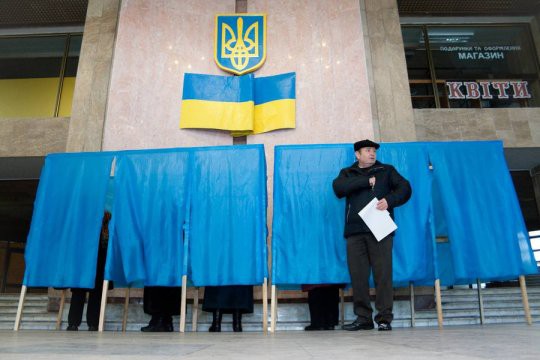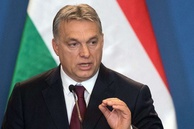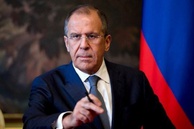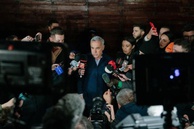Vladimir Zelensky’s presidential term expires on May 20. Past that date, his legitimacy will be called into question, leading up to a constitutional and legal conflict. Moreover, the legitimacy of the entire Ukrainian government will become questionable too, since the Ukrainian presidency, as an institution, is an integral part of the country’s system of power.
This is not the first such controversy in the history of modern Ukraine. The legitimacy of Viktor Yushchenko, who held office from 2005 until 2010, is dubious due to the unconstitutional third round of the 2005 presidential elections.
The legitimacy of Petro Poroshenko (2014-2019) is also in question because elections were held despite the fact that Ukraine had lost Crimea and Donbass in 2014 – a fact that was not reflected in the Constitution and the country’s laws.
The Verkhovna Rada (parliament) dealt a blow to Zelensky’s legitimacy when it voted for a 90-day extension of the martial law, until May 13, 2024. [i] At the same time, martial law presupposes the cancellation of parliamentary elections, but there is no such constitutional provision for the President of Ukraine. The powers of the current parliament end in August of this year. However, even before the extension of the martial law, the Secretary of the National Security and Defense Council of Ukraine, Alexei Danilov, warned that elections would not be held either in the spring of 2024, or even until the end of the martial law period. [ii]
This legal conflict can only be resolved by the Constitutional Court (CC) of Ukraine. This means that the “legal ball” is now in the court of the Constitutional Court. It is worth mentioning the fact, however, that back in 2021, a Ukrainian court ordered the National Anticorruption Bureau (NACB) to launch a criminal case against the CC’s acting head Sergei Golovaty. Notably, NACB was created and controlled by the United States. Sergei Golovaty, who is currently in acting status, is under constant pressure from the anti-corruption authorities. In January 2024, the Goloseyevsky court in Kiev found him guilty of refusing to provide the NAPC (National Agency for the Prevention of Corruption) with the requested documents in the case of a conflict of interest. [iii] All this means that the head of the Constitutional Court has long been under pressure from Zelensky’s office. At the same time, even experts who claim that Zelensky can be considered a legitimate president also after May 20, say that it would be correct for the Constitutional Court to come up with a legal clarification in order to put an end to the interpretation of this section of the constitution regarding the President of Ukraine.
There is also a constitutional provision, which stipulates that until the new president takes office, the duties of the head of state are performed by the previously elected president. However, this option, meant to ensure a continuity of power, is constitutional only if presidential elections have been announced. However, presidential elections, according to the constitutional terms and election campaign calendar, have not been called. But even this constitutional hurdle can be bypassed in the intricate web of Ukrainian laws, since the chairman of the Verkhovna Rada can, for example, become the acting president. This is what happened during the “revolution of dignity” in 2014, when the acting parliamentary Speaker Alexander Turchynov served as Ukraine’s interim President.
Expert Alexey Panich has proposed a way for Zelensky to hang on to power post the May 20 deadline. Panich believes that there is no “conflict” between Article 108 [iv] of the Constitution and Article 103, which stipulates a five-year presidential term: “After May 20 of this year, President Zelensky simply acquires the legal status of acting President - a person who “exercises his powers until the newly elected President of Ukraine takes office." Officially, this will not be the president in the full sense of the word, but the scope of his powers will not decrease.” [v]
Clearly, martial law alone is not enough to not hold presidential elections in Ukraine within the timeframe established by the country’s constitution; the legislative basis is not at all indisputable. Therefore, as has always been done in Kiev, politics kicked in – when meeting with members of the Servant of the People parliamentary faction, Zelensky claimed there is a certain plan to destabilize the situation in the country in May, and that the Verkhovna Rada happens to be at the very heart of this plot, which will be part of a major information campaign aimed at undermining the legitimacy of the head of state. He added that according to this plan, starting from May, entire factions could begin to sabotage the work of parliament, creating a crisis around the presidential legitimacy. [vi] Moreover, politeness aside, Zelensky said the following:
- the Russians are to blame for everything;
- whoever puts my power and my authority in doubt works for the Russians.
Well, how else can you explain everything?
Will there be presidential and parliamentary elections in Ukraine within the constitutional timeframe? Sociology provides one of the main answers to this question.
According to a survey conducted by the Ukrainian Center for Social and Marketing Research SOCIS, if presidential elections were held in 2024, the ex-commander-in-chief of the Ukrainian armed forces Valery Zaluzhny would come out the winner. Zaluzhny enjoys the support of 31.3% (41.4% among those who have decided and will go to the polls), and if he gets into the second round with Zelensky, he will garner 48.2% (67.5% of those who have decided, those who will go to the polls). Zelensky is supported by 21.7% (23.7% of those who have decided), and in the run-off against Zaluzhny 23.3% would support him. (32.5% of undecideds). [vii] The rest of the likely candidates trail far behind: Petro Poroshenko - 4.8% (6.4% of those who have decided), ex-speaker of the Verkhovna Rada Dmitry Razumkov - 4.2% (5.6 %), former showman, and now a noted nationalist Sergei Pritula - 3.1% (4.1%), head of the State Intelligence Directorate Kirill Budanov - 2.4% (3.2%), Yulia Tymoshenko - 2.1% (2. 8%), former adviser to the presidential office Alexey Arestovich [viii] - 1.1% (1.5%), oppositionist Yuri Boyko - 0.9% (1.1%), and Kiev mayor Vitaliy Klitschko - 0.7% (0.9%). The survey results seem fairly realistic, as they correlate well with the political situation. Poroshenko’s 6.4% reflect the Ukrainians’ assessment of his past presidency and current activities; the extremist Arestovich fares even worse against with the current “president of war,” and the claims, even likely ones, by Kiev mayor Klitschko for the status of an all-Ukrainian leader are absolutely untenable.
Parliamentary elections also become important and, judging by the results of the SOCIS poll, also pose a threat to Zelensky’s team. If Zaluzhny had created a political party, it would have received a majority of votes. This is evidenced by a survey of Ukrainian citizens about who they would vote for in the elections to the Verkhovna Rada. 34.2% said they would vote for Zaluzhny's party (46.4% among those who have decided and those who will go to the polls), 15.5% (21.1%) would vote for Zelensky's party, and 5.5% (7. 5%) – for Poroshenko’s. [ix]
The results of this and other sociological studies and expert assessments point to a significant drop in Zelensky’s popularity and that Zaluzhny, having lost the post of commander-in-chief of the Ukrainian armed forces, enjoys the highest rating among the presidential hopefuls. This rating is also converted into that of the political force that could participate in parliamentary elections and win big. However, there will be no elections. As for the parliament, there are constitutional grounds to consider it legitimate. According to the constitution, the powers of the Verkhovna Rada continue until the day of the first meeting of the first session of the newly elected legislature. Now it becomes clear why a wary Zelensky described the “Russian plan to destabilize the situation in the country” as a ploy to weaken the Verkhovna Rada: after May 20, 2024, the parliament will have greater (if I can call it so) legitimacy than the President. Appointing the parliamentary Speaker the acting head of state would be the most constitutional solution to this legal clash. In a situation like this, Zelensky’s office needs complete control over parliament. To what extent this issue has been resolved is not yet clear though.
Zelensky’s team has made every effort to make sure that the elections do not happen, not even called. His main rival was squeezed out of the public view and sent into retirement so that he would pose no threat as a potential leader of a military coup, so that those dissatisfied with Zelensky would have no one to rely on.
This being said, the problem of legitimacy remains open. However, in Ukraine bending laws and the constitution is a tradition.
There also remains the question of external influence on and interest in the political processes going on in Ukraine pertaining to the presidential elections. Western politicians has so far abstained from making any statements regarding the presidential elections in Ukraine. Well, one event laying bare the outside forces’ intentions concerning the Ukrainian elections happened on March 7, when it was announced that President Zelensky had approved the candidacy of Ukraine’s ex-army chief Valeriy Zaluzhny as the country’s new ambassador to the UK.
“General Zaluzhny told me that this is the direction he would like to take – diplomacy,” Zelensky said. Our alliance with Great Britain should only get stronger,” he added. [x]
Thus, Zaluzhny’s exile to London comes as the West’s tacit “commentary” regarding the situation with the Ukrainian elections.
If legitimacy becomes a significant problem for Zelensky, there will be elections and Zaluzhny will get back to Kyiv. In the meantime, he will be groomed as a politician, because he is not a politician now. In addition, his comeback could mean a new chapter in the Ukrainian crisis, since Zelensky is viewed as unsuitable for any negotiations at the new stage.
The cancellation of elections under the pretext of martial law and the falling support figures are fresh proof of the fact that Vladimir Zelensky has finally turned into a “president of war,” who can only exist in conditions of war. On May 20, Zelensky will not only cease to be a legitimate head of state, but can be considered a usurper.
The views of the author are his own and may differ from the position of the Editorial Board.
---------------------------------------------------------------------------
[i] https://ctrana.news/news/457073-parlament-utverdil-ukaz-prezidenta-o-prodlenii-dejstvija-voennoho-polozhenija.html
[ii] https://ctrana.news/news/457030-budut-li-v-ukraine-vybory-do-zavershenija-voennoho-polozhenija-aleksej-danilov.html
[iii] https://ctrana.news/news/454829-sud-priznal-vinovnym-io-hlavy-konstitutsionnoho-suda-holovatoho.html
[iv] Article 108 of the Constitution of Ukraine – the head of state exercises his duties until his successor takes office.
[v] https://ctrana.news/articles/analysis/457594-chto-budet-s-lehitimnostju-prezidenta-zelenskoho-kohda-istechet-pjatiletnij-srok-eho-polnomochij.html
[vi] https://ctrana.news/articles/analysis/458430-pochemu-vladimir-zelenskij-zajavil-o-plane-po-destabilizatsii-ukrainy-v-mae.html
[vii] https://censor.net/ua/n3476952
[viii] Regarded as an extremist
[ix] https://censor.net/ua/n3477006
[x] https://ctrana.news/news/459546-vechernee-obrashchenie-zelenskoho-7-marta-2024.html
read more in our Telegram-channel https://t.me/The_International_Affairs

 12:07 13.03.2024 •
12:07 13.03.2024 •



























